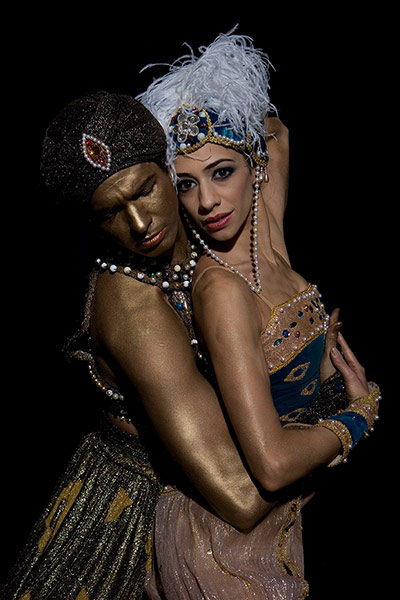
Taking it slowly… how about, say, a thousand and one nights? The inspiration for Rimsky-Korsakov’s exotic orchestral piece Scheherazade (1888) was Tales of the Arabian Nights. Easily bored, the Sultan is in the habit of murdering each new wife on the night of their marriage. His latest, Scheherazade, saves herself by telling captivating stories, ending each night with a cliffhanger. The Sultan is so gripped that he postpones her execution and falls in love with her. The Russian composer portrays her by a sensuous solo violin and harp Photograph: PR
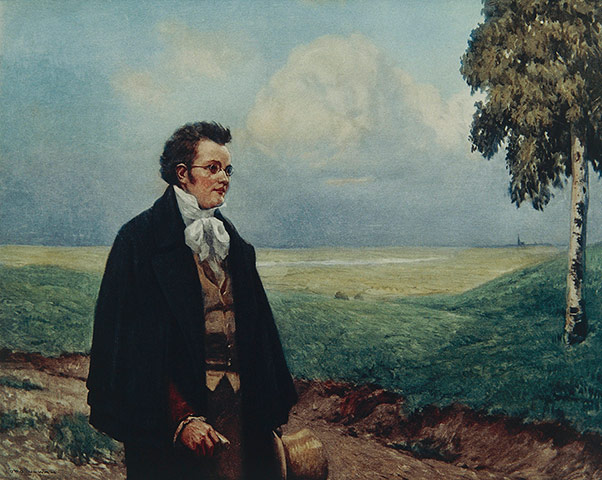
The lover, his cheeks blushing and his heart full, wants to carve her name on the bark of every tree, etch it in pebbles, write it on every blank sheet of paper. The refrain is simple: “My heart is yours for ever”. Urgent and joyful, the song comes from Schubert’s cycle Die schöne Mullerin (1820), about a young miller and the love of his dreams. It may eventually end in tears, but right now, with its pounding piano accompaniment and irresistible melody, this is music of unalloyed rapture under a cloudless sky Photograph: De Agostini/Getty Images
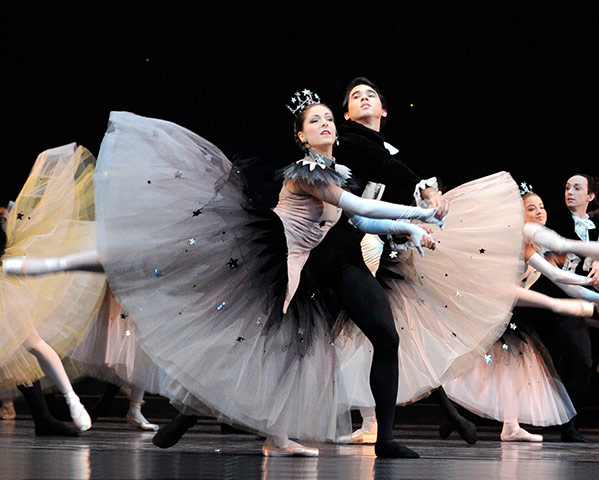
Get a bit closer with some erotic Ravel. More smoochy than the formal Viennese equivalents, this single-movement 1920 work is a heady tribute to the waltz. Since by tradition the man was expected to clasp the woman, the dance was regarded as immoral, and banned in California until the mid-1830s. Some think Ravel’s music sums up the entire breakdown of European civilisation after the collapse of the Austro-Hungarian empire and the first world war. Lighten up. You may end up dancing cheek to cheek Photograph: Robbie Jack/Corbis
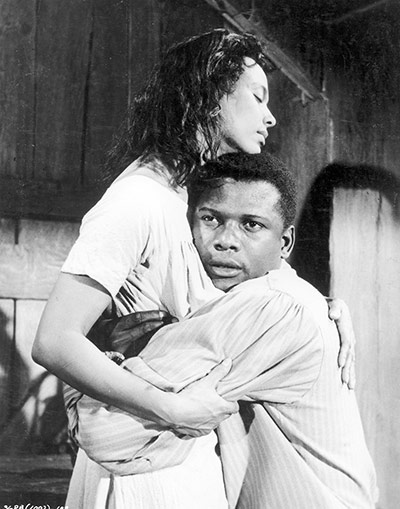
Wistful, full of yearning, this ballad from Gershwin’s Porgy and Bess begins as a solo from Porgy, then Bess joins in ecstatically as they celebrate casting off loneliness and suffering to become a couple: “An’ you mus’ laugh an’ sing an’ dance for two instead of one,” commands Porgy. There’s maybe a little too much talk of wrinkles for our Botox-obsessed age: “Want no wrinkle on yo’ brow,” sings Porgy. But Bess Is the lucky one: “Dere’s no wrinkle on my brow.” Or not for the time being. It breaks your heart Photograph: The Ronald Grant Archive

Love in all its variety; long-distance, platonic, lost but never forgotten. Poulenc, who died 50 years ago, wrote this bittersweet chanson in 1940 for the Parisian chanteuse Yvonne Printemps (above), who performed it – with nice irony – with her husband, then with her lover. She had style. Poulenc himself, though ever anxious about his sexuality, is often called the first openly gay composer. He moved in bisexual circles – Cocteau, the Princesse de Polignac – and dedicated works to his many lovers. For a more direct celebration of male beauty, turn to Les Illuminations by Britten, which he performed so many times with his life-partner Peter Pears Photograph: Sasha/Getty Images

Many who know this opera, which has a deceptively playful, if not misogynist plot, yet the most ethereal music, consider this one of the perfect displays of love in all music. Dorabella and Fiordiligi think their two lovers are going off to war. They’re distraught, fearing for their safety. Instead, the men are about to embark on a none too amusing trick to test their fiancees’ fidelity. “May the winds be gentle and the waves calm,” they implore, while the music rocks gently, with a sudden change-of-key darkening (c.1’30) and turbulence until harmony returns Photograph: Kerstin Joensson/Associated Press
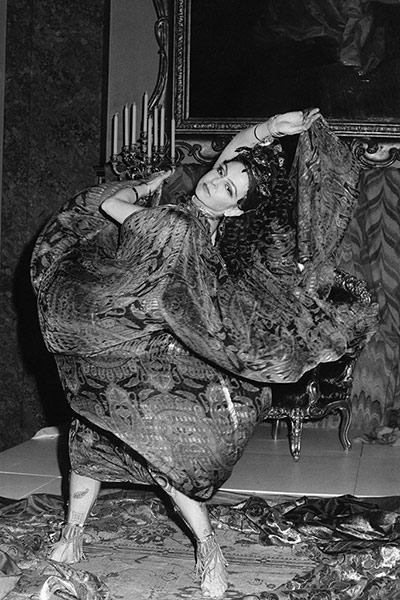
A voluptuous, titivating orchestral striptease, it’s performed by the biblical femme fatale, Salome, from Richard Strauss’s 1905 opera shocker of that name, based on Oscar Wilde’s play. Don’t dwell on the sleazy fact that this naughty, somewhat deranged teenager dances it for her stepfather, Herod; this is a seriously dysfunctional family and we’re certainly not recommending incest. But it’s luscious, seductive music. Steer clear, too, of what comes next: the thought of John the Baptist’s head on a plate may spoil your candlelit dinner Photograph: Hulton-Deutsch Collection/Corbis

Originally from a Tuscan poem, the song tells that familiar story – I saw you in my dreams, you were happy, your eyes were shining, you called my name; but when I woke you’d gone. Fauré, reputedly a great charmer who took many lovers and eventually kept one, the love of his life, in an apartment in Paris, wrote it in the 1870s. It was to become one of his most popular, with an unforgettable melody. It’s usually performed by voice with piano (try Véronique Gens). But two other versions, one vocal close harmony (Tenebrae), the other for cello (played by the great Rostropovich), are even more romantic Photograph: Christie's Images/Corbis
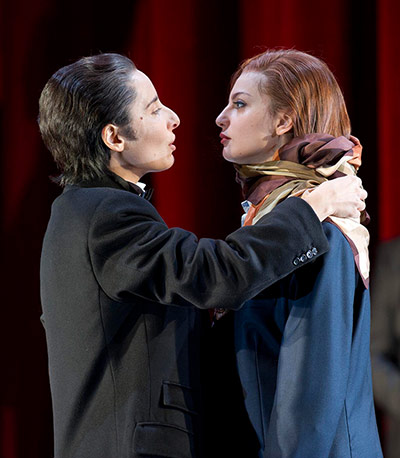
Music for when things hot up, especially when adultery is involved, as here, between the Emperor Nero and his ambitious mistress, Poppea. The title of this dangerous and flirtatious final duet of Monterverdi’s L’incoronazione di Poppea (1643) means literally “I gaze on you”. In some performances it’s sung by two women (try the combination of Sandrine Piau and Anne Sofie von Otter), one cross-dressed for added frisson. Or try soprano and countertenor, Nura Rial and Philippe Jaroussky. It’s all the more potent when you know Nero will soon cast her off, and that there’s a question mark over whether Monteverdi actually wrote the music. It’s unbelievably sexy still Photograph: Bill Cooper/PR
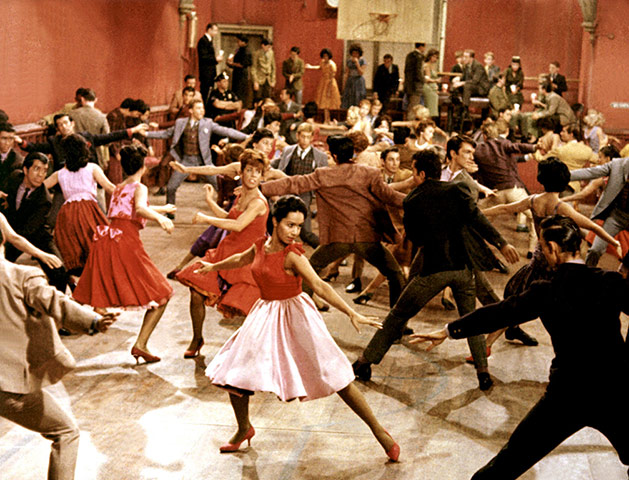
“Tonight, tonight/ It all began tonight/ I saw you and the world went away…” Maria, Somewhere, I Feel Pretty… Bernstein’s West Side Story, with lyrics by Stephen Sondheim, is packed with love music: fast, slow, edgy. Nothing quite matches Tonight for that sense of lovers’ optimism. Set on New York’s Upper West Side in the 1950s, it’s essentially a rewrite of Romeo and Juliet, so you know the outcome. Everyone who’s anyone has recorded it. Even if the night goes badly, or you spend it alone with the cat, this tune will have you singing from the rooftops. Here it is from the original film, complete with serious lipsynching Photograph: Everett Collection/Rex Features

